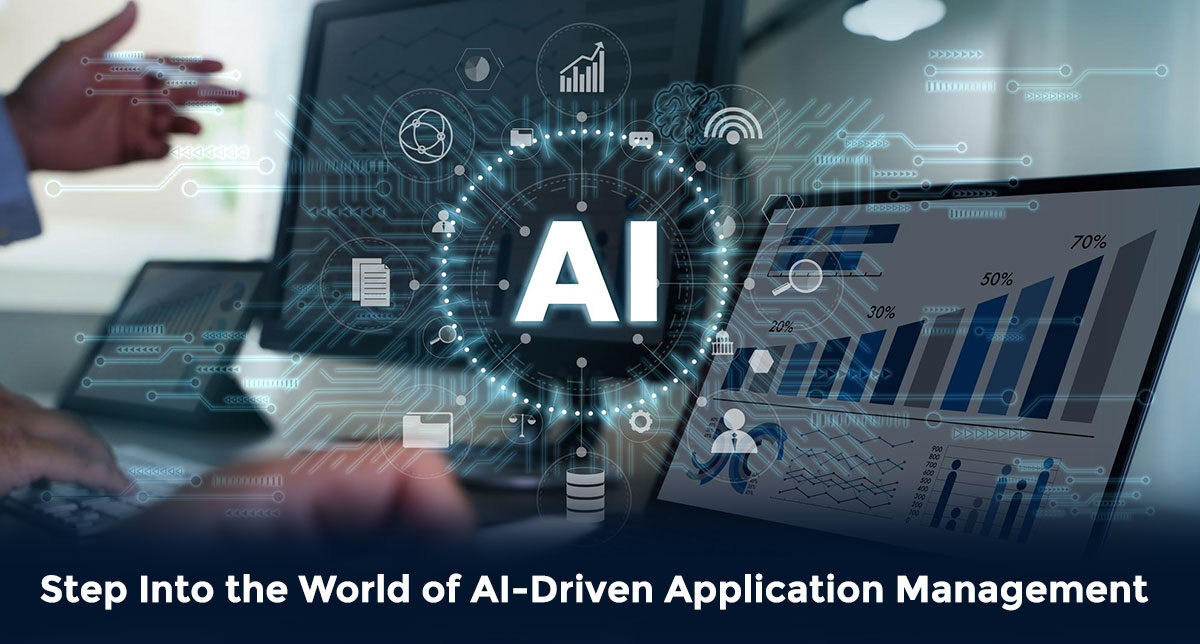
Are You Ready for the Future of AMS?
As businesses increasingly adopt complex technologies, the demand for efficient and innovative Application Management Services (AMS) has never been higher. AI has become a welcome force in this service, bringing automation, predictive capabilities, and advanced analytics into application management. But how is AI transforming into AMS, and what does this mean for businesses and IT professionals?
This article breaks it down, highlighting the key benefits, potential risks, and methods for implementing AI in AMS to deliver exceptional results.
The Role of AI in AMS
AI in AMS expands the possibilities by providing tools that add efficiency, scalability, and intelligence to routine operational tasks. AI is changing how we manage applications by automating routine tasks and fixing problems before they happen.
The Benefits of AI in AMS
1. Automation of Routine Tasks
Gone are the days when IT teams need to manually update software, manage user accounts, or monitor systems. AI takes over these repetitive tasks, allowing IT professionals to focus on higher-value strategic initiatives. Whether patching security vulnerabilities, managing user profiles, or helping you become more efficient, AI ensures consistency and speed, saving time and effort.
- Enhanced Monitoring and Detection
Imagine having a 24/7 assistant continuously monitor your applications and detect anomalies before they spiral into major issues. AI-driven tools provide just that by offering real-time insights and early warnings. This minimizes downtime and enhances reliability, significantly improving application performance.
3. Predictive Maintenance
AI analyzes historical performance data to predict potential issues before they arise. Let’s shift from fixing problems to preventing them. Predictive maintenance reduces the chances of unexpected failures, ensuring business continuity and significant cost savings.
4. Intelligent Analytics
With the help of artificial intelligence, teams can examine large datasets to discover valuable information. Whether optimizing workflows or aligning IT operations with business goals, AI provides clarity and direction in decision-making. Gone are the days of reactive IT management—now, it’s all about strategic, data-driven planning.
5. Cost Efficiency
Automation and improved operational efficiency directly lead to cost savings. AI reduces manual intervention, optimizes resource allocation, and leverages capabilities that maximize the value extracted from IT operations.
6. Innovation and Modernization
AI drives innovation within AMS. Technologies like predictive AI and generative AI pave the way for agile and resilient operations that can handle the rapidly changing needs of businesses. This lets application management teams help the company modernize by keeping its applications current.
Enhancing Client Experiences with AI in AMS
For AMS teams, using AI isn’t just about internal efficiencies; it’s also about delivering unparalleled value to clients. Here’s how AI enables this:
- Improved Service Quality: AI’s ability to predict and resolve issues before they affect clients ensures higher satisfaction.
- Faster Issue Resolution: AI tools can diagnose and suggest solutions faster, minimizing downtime and improving trust.
- Personalized Client Experiences: AI can offer personalized recommendations and tailored services by analyzing client usage trends, creating a stronger bond between AMS teams and their clients.
- Scalability: AI allows teams to scale their operations effortlessly, meeting growing or fluctuating client demands.
- Data-Driven Insights: Leverage insights to better predict future client needs and align solutions with their business objectives.
Potential Challenges of AI in AMS
While the benefits are vast, AI in AMS has its share of challenges. Here’s a look at the potential risks:
- Data Privacy and Security: Protecting sensitive information with AI accessing large datasets is essential. Using robust cybersecurity measures and compliance with regulations like GDPR is imperative.
Bias and Fairness: AI algorithms may carry biases from training data. Ensuring fairness and equality in outcomes avoids reputational risks.
Complexity and Integration: Implementing AI can be technically demanding and may disrupt existing processes. Careful planning and phased integration are necessary to avoid operational bottlenecks.
Dependence on AI: Over-reliance on AI can reduce human oversight, which is critical for decision-making in unpredictable scenarios.
Transparency and Accountability: Many AI systems, especially deep learning ones, operate as “black boxes.” This lack of explicability may hinder trust among stakeholders.
Cost of Implementation: Initial AI deployment can be resource intensive. Ensuring your organization has the budget and expertise is crucial for success.
Tips for using AI in application management systems
To use AI effectively in AMS and avoid problems, follow these suggestions:
- Start Small and Scale Gradually: Begin with pilot projects to measure the impact of AI on specific tasks before scaling up.
- Focus on Data Quality: High-quality, unbiased data is the backbone of effective AI implementation.
- Ensure Safety and Compliance: Stay updated on regulations and implement strict data governance protocols to protect sensitive information.
- Maintain Human Oversight: Balance AI’s capabilities with human expertise to guarantee accountability and ethical decision-making.
- Train Your AMS Team: Invest in educating your team effectively on using AI-powered tools and interpreting their outputs.
The Future of AMS with AI
Integrating AI into AMS isn’t just a trend. It’s a critical step for organizations seeking to thrive in a competitive, technology-driven market. AI empowers IT professionals and enterprise managers to focus on innovation rather than maintenance by automating processes, enhancing monitoring, and delivering data insights.
However, it’s essential to acknowledge that AI is a tool—not a replacement for human intelligence. When deployed thoughtfully and aligned with business goals, AI in AMS can unlock additional levels of efficiency, client satisfaction, and agility.
Are you ready to empower your AMS team with AI capabilities?
Starting with the right knowledge is key—explore where AI fits within your processes and lay the foundation for more competent and reliable application management.
Contact us to get started.
PhenomᵉCloud is a comprehensive technology solutions provider committed to empowering businesses to overcome challenges, enhance their workforce capabilities, and achieve superior outcomes.


Leave a Comment